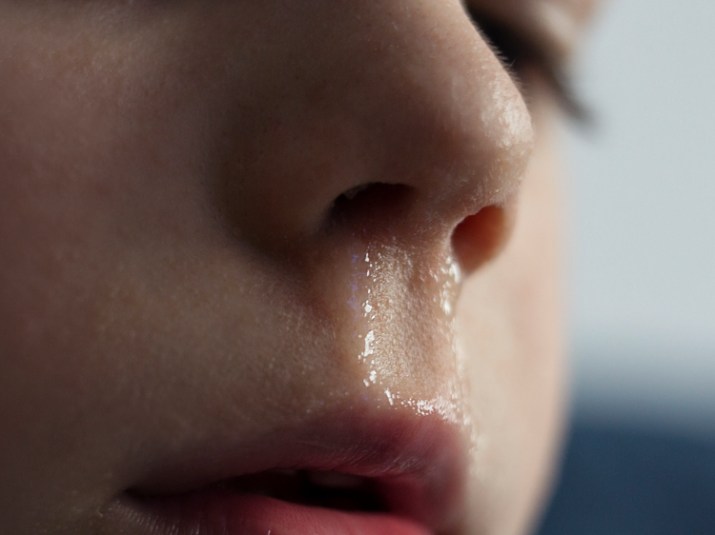Woman’s Nonstop Runny Nose Turned Out to Be Brain-Fluid Leak

Kendra Jackson of Nebraska thought allergies were to blame for her persistently running nose. Despite doctors assuring her that was the case, Jackson worried her sniffles may have been linked to a 2013 car crash in which she slammed her head on the dashboard. Her hunch led her to Nebraska Medicine this year, where she finally got the correct diagnosis: Her nose was leaking brain fluid.
Specifically, the leak involved Jackson’s cerebrospinal fluid — also known as the clear, colorless fluid that surrounds the brain. As if that weren’t bad enough, experts informed Jackson that her brain fluid was leaking through her nose at the rate of approximately a half pint per day. The condition was not only the cause of her continuously runny nose, but also her constant headaches and her problems she had with sleeping. Furthermore, it was severely affecting her daily life and seemed to show no signs of stopping.
“Everywhere I went, I always had a box of Puffs, always stuffed in my pocket,” Jackson said in an interview with local station KETV.
But thanks to the hardworking doctors at Nebraska Medicine, she was able to get the problem treated — and she didn’t even need to get brain surgery. Rhinologist Christie Barnes, MD, told KETV that the team did the surgery through Jackson’s nostrils, using a variety of angled cameras and instruments to close the small hole that was causing the leak in the first place.
Although doctors will still need to do follow-up appointments to monitor the pressure in Jackson’s head, she is expected to make a full recovery. And now, she’s already seeing a huge difference.
“I don’t have to carry around the tissue anymore,” Jackson said. “I’m getting some sleep.”
Remember: If you’re concerned about anything unusual happening with your body, please do not hesitate to go to the doctor to get it checked out.
More From FIRST
Woman’s 132-Pound Weight Gain Turned Out to Be an Ovarian Tumor
What You Eat Can Affect How Early (or Late) You Get Menopause, Study Suggests
Julianne Hough Wants Women With Endometriosis to Know They’re Not Alone













